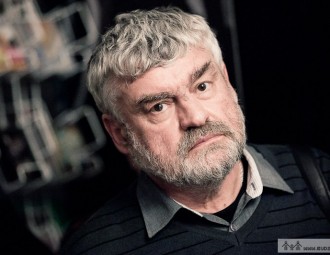Uladzimir Arlou: Belarusians are able to meet the challenges of history
 budzma.by
budzma.by
On August 25, in the unofficial Independence Day the writer celebrated his birthday.
In February 1990, when the very air was saturated with the idea of an independent country, Uladzimir Arlou, wrote his famous essay "Independence - is ..." literally in one hour. Rereading it today, it is impossible to get rid of the thought that even after 26 years (25 of which Belarus has been an independent country) the writer’s dreams didn’t really become true. However, the author looks at it more optimistically. On the day when the Declaration of State Sovereignty of the Belarusian Soviet Socialist Republic acquired the status of the constitutional law and on the day when Uladzimir Arlou was born the "EuroBelarus” Information Service visited the writer and talked with him about the independence, national values, and the fashion for Belarusianness.
- We know many nations that have disappeared. The world has about three thousand nations, and only about two hundred of them managed to achieve statehood. There are nations that are bigger than our nations, who don’t have their own state.
I think that the words of Vaclav Havel will be fulfilled in the 21st century, who said that Belarus is bound to be in united Europe, as the shape of a democratic united Europe will never be complete without Belarus. He repeatedly said that both in private conversations with Belarusians, and at various conferences. And it is bound to be like that, because we are Europeans, not only geographically, but also historically, culturally, and mentally.
- How do you perceive the fact that the Declaration of State Sovereignty was given constitutional status on the day when you were born?
- I have a dream that my birthday would be a public holiday in our country (laughs). And, of course, I remember my first birthday, which coincided with this event in 1991. I remember my friends calling in in the evening, among whom were several members of the Supreme Council of the 12th convocation. They gave me a piece of brick that was knocked off the building of the Central Committee of the Communist Party of Belarus. There was a meeting then where the Communist Party of the Soviet Union was “buried” and party officials were fleeing through the backdoor. I hope that one day my birthday will take place during the same merry wave.
- Many times in history Belarusians have tried to return to their roots, and all in vain. Why is it like that, and under what conditions is it possible?
- I’m not a futurologist, but I think that it will happen if Belarus will have a creative minority, capable of solving all the problems of the state. I am a historian and I support the English historian and philosopher Arnold Toynbee, who considers the development of human civilization as an endless dialogue between Logos – God – and the nations. This supreme power sends challenges to a nation, and if it doesn’t meet this challenge, the nation may leave the historical arena. History, especially the history of the 20th-21st centuries, shows that we, Belarusians, seem to be at its most dangerous point, but will manage to meet the challenge after all. Therefore, I look forward with optimism.
- Do you think today's fashion for Belarusianness is a mere trend, or there is something serious to that?
- Of course, this is a manifestation of mass tendency to return to their national values. For some, it's just fashion. But sometimes at its core lies an unconscious desire to return to our roots, especially now, in the new geopolitical situation, under the threat of the "Russian world". I think that this trend will gain momentum, and is already strong enough for the state not to interfere and sometimes even help.
-
03.01
-
07.10
-
22.09
-
17.08
-
12.08
-
30.09



























